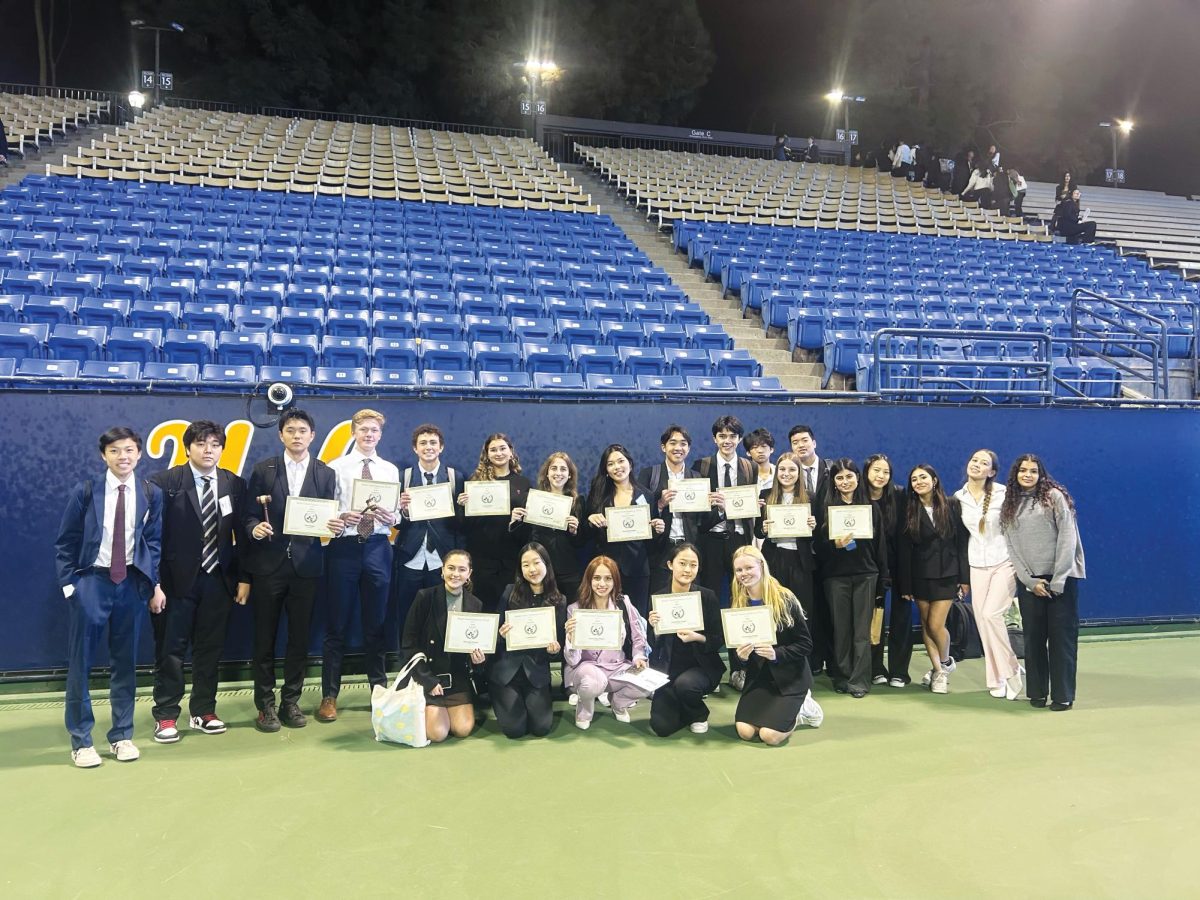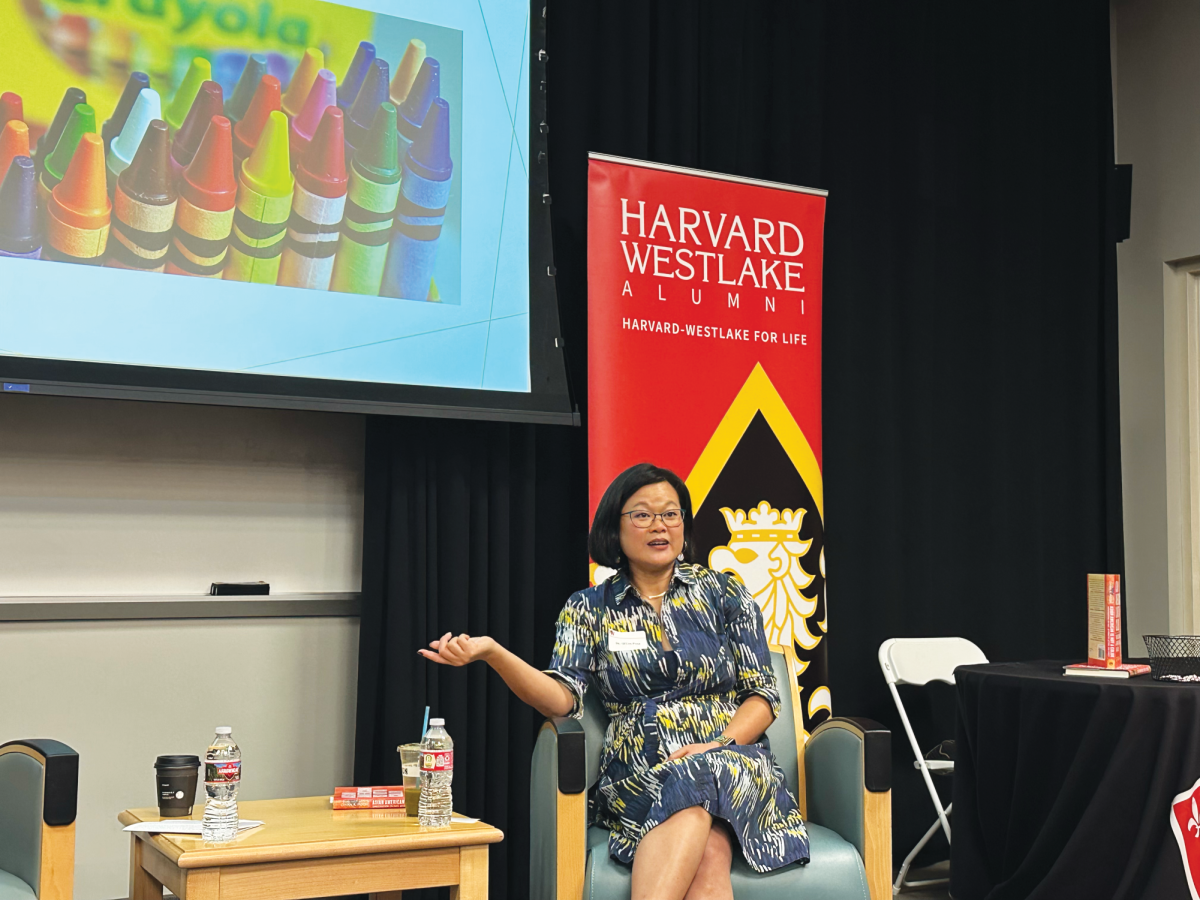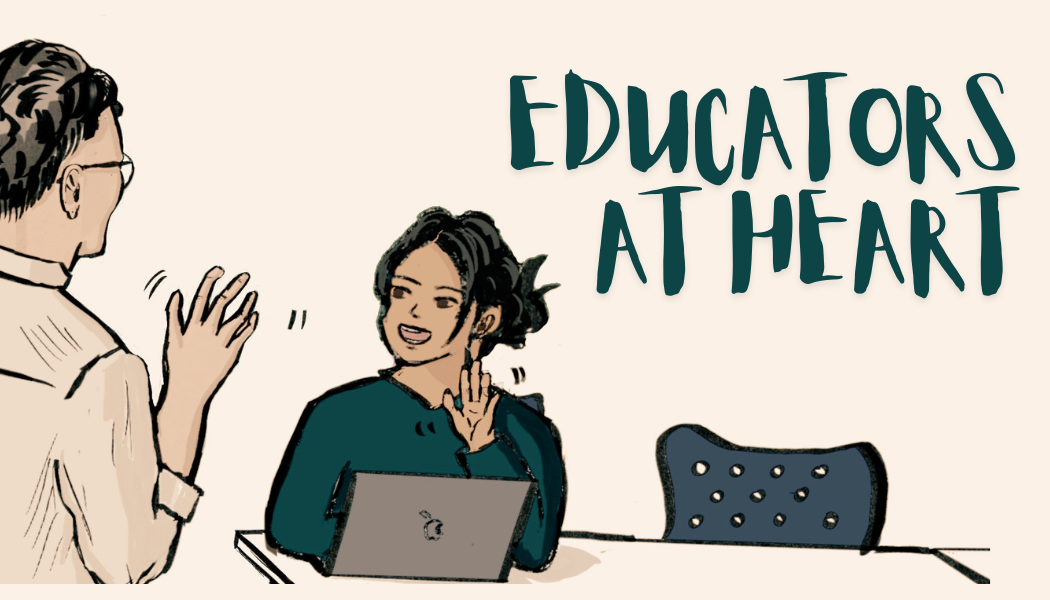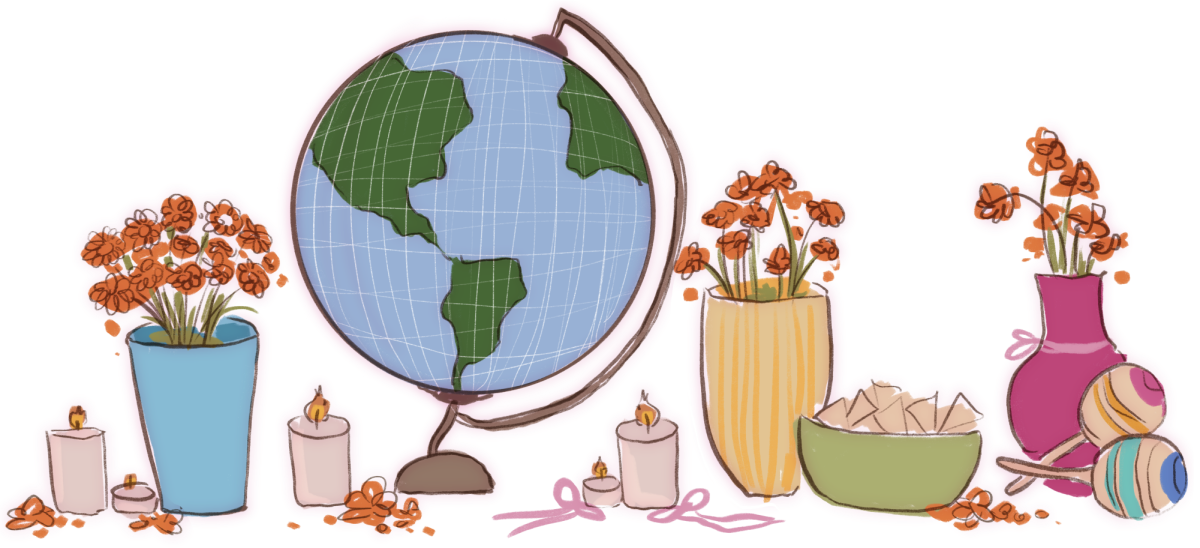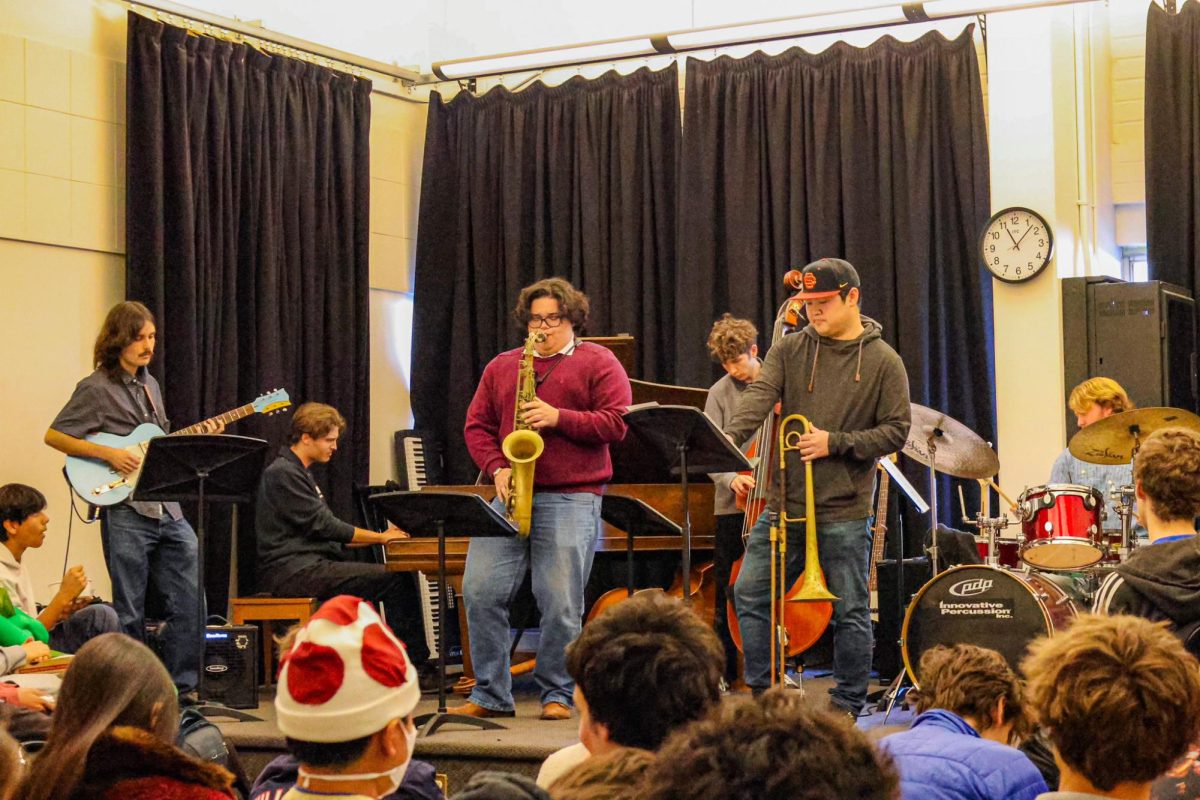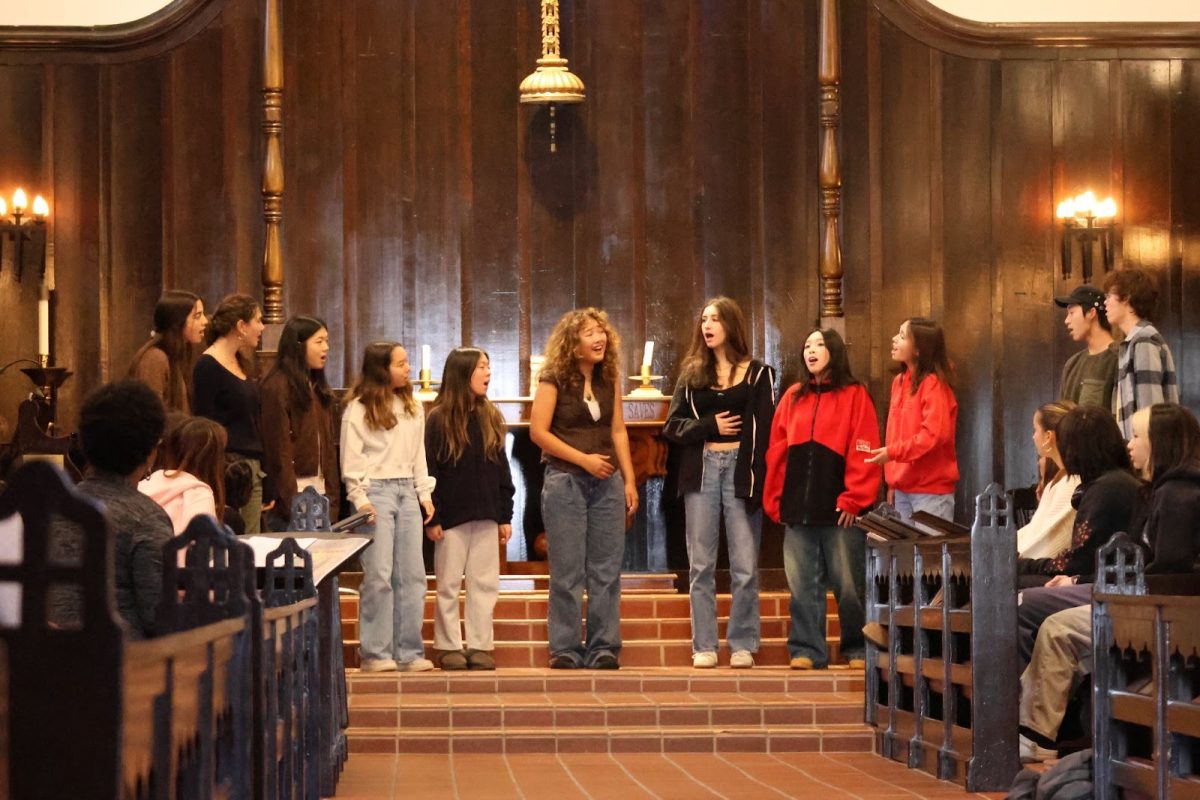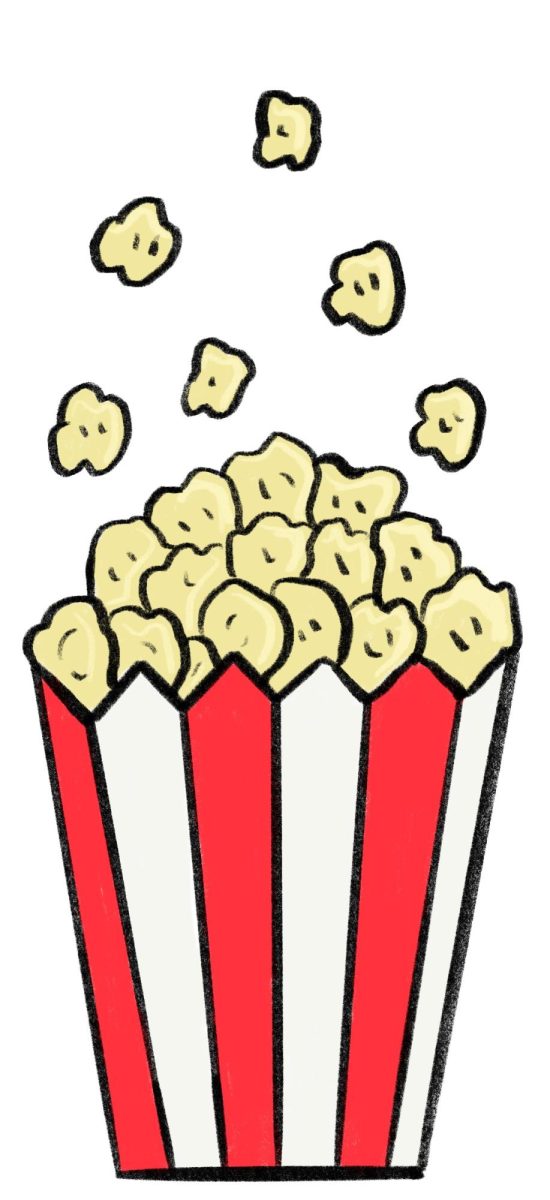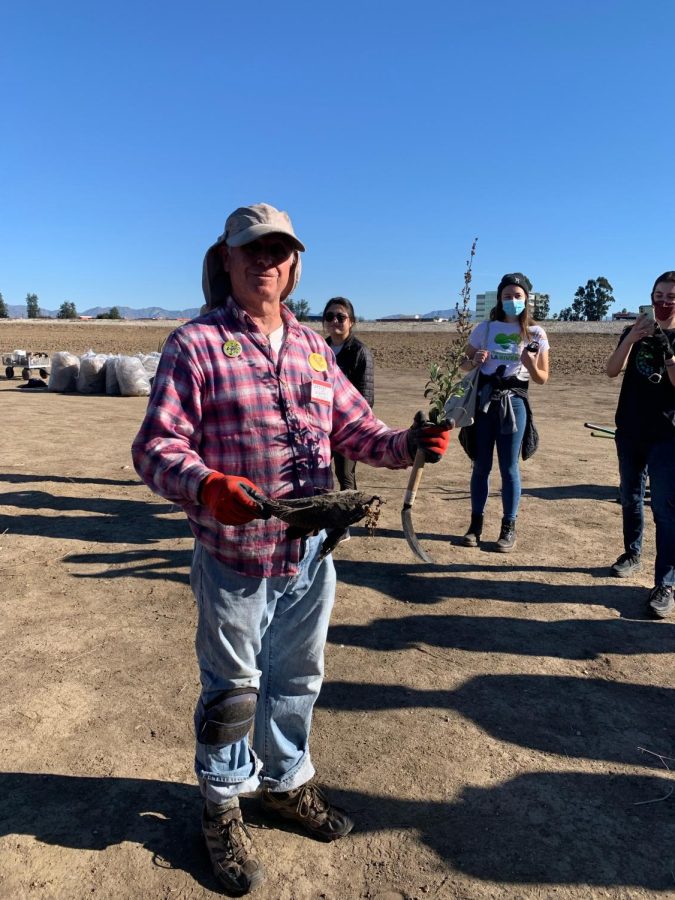Students plant native species and help maintain local ecosystem
Photo Printed With Permission of Chloe Appel
George Wodell, a volunteer at the California Native Plant Society, explains to volunteers how to pull invasive weeds.
December 12, 2021
Environmental Club students and Advanced Placement (AP) Environmental Science students removed invasive weeds and planted native California plants with Friends of the Los Angeles River (FoLAR) and the California Native Plant Society in the Sepulveda Basin on Dec. 11. The community service event occurred after FoLAR Director of Education Dennis Mabasa gave a presentation to students about environmental careers Nov. 29.
The community service event served as an opportunity for students to learn about their city’s environment in-depth and complete several hours worth of their annual 12-hour community service requirement.
Mabasa provided insight on the environmental science field and hosted a Q&A session with students. Students had the option to go inside the River Rover, which is a mobile interactive exhibit curated by FoLAR, after the presentation concluded.
Ellingson said he hopes attendees recognize the importance of the plants in their area.
“I think it’s important for residents of [Los Angeles] to gain some personal appreciation for how valuable green and relatively natural spaces with the city can be for our communities,” Ellingson said.
Environmental Club co-leader Chloe Appel ’23 said she wants people in attendance to understand the number of environmental benefits that come from maintaining healthy ecosystems.
“I hope that community members who go to FoLAR events take away the understanding about how reestablishing the presence of native plants around [Los Angeles] can be incredibly beneficial, not only for the environment and the plants and animals we live with but also for us,” Appel said. “I hope that seeing how easy and fun it can be to help our community helps motivate students to continue doing more community service as well.”
Appel said working with professional organizations greatly helps the effort to restore California native plants and species to their natural habitats.
“I think that partnering with FoLAR and the California Native Plant Society makes the event always run very smoothly since there are so many people who are there to help you with anything you need,” Appel said. “We can cover way more ground with all of the different people, making it much easier to see big results in such a short period of time.”
Environmental Club co-leader Maya Mathur ’22 said Mabasa’s path to where they are today helped her realize that an environmental career can be achieved without a background that many people view as necessary.
“I already knew I was interested in an environmental career, but I think [Mabasa’s presentation] made me realize that [careers in the environmental field] are more accessible,” Mathur said. “It is possible to have an environmental career and not necessarily major in environmental science in college.”

